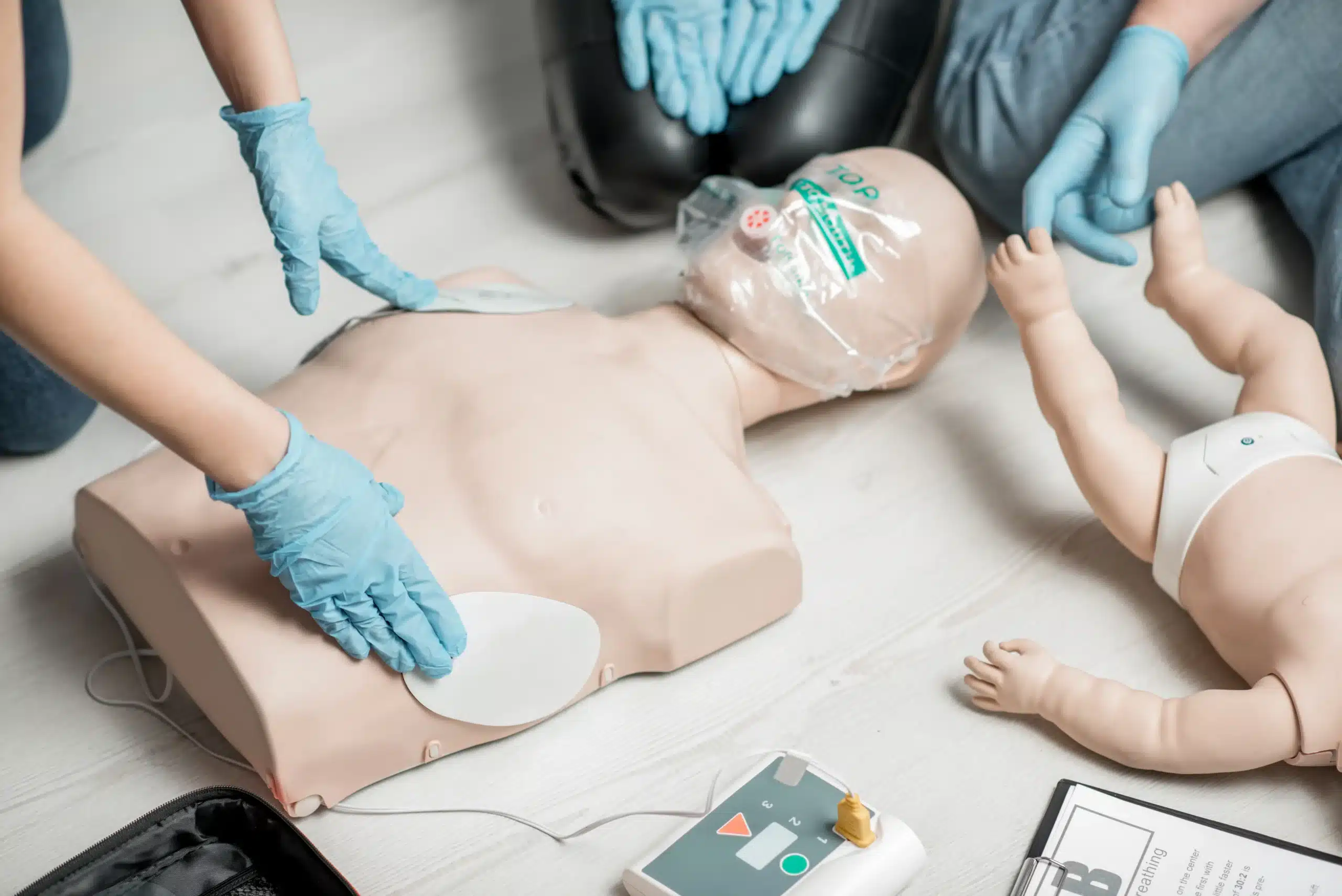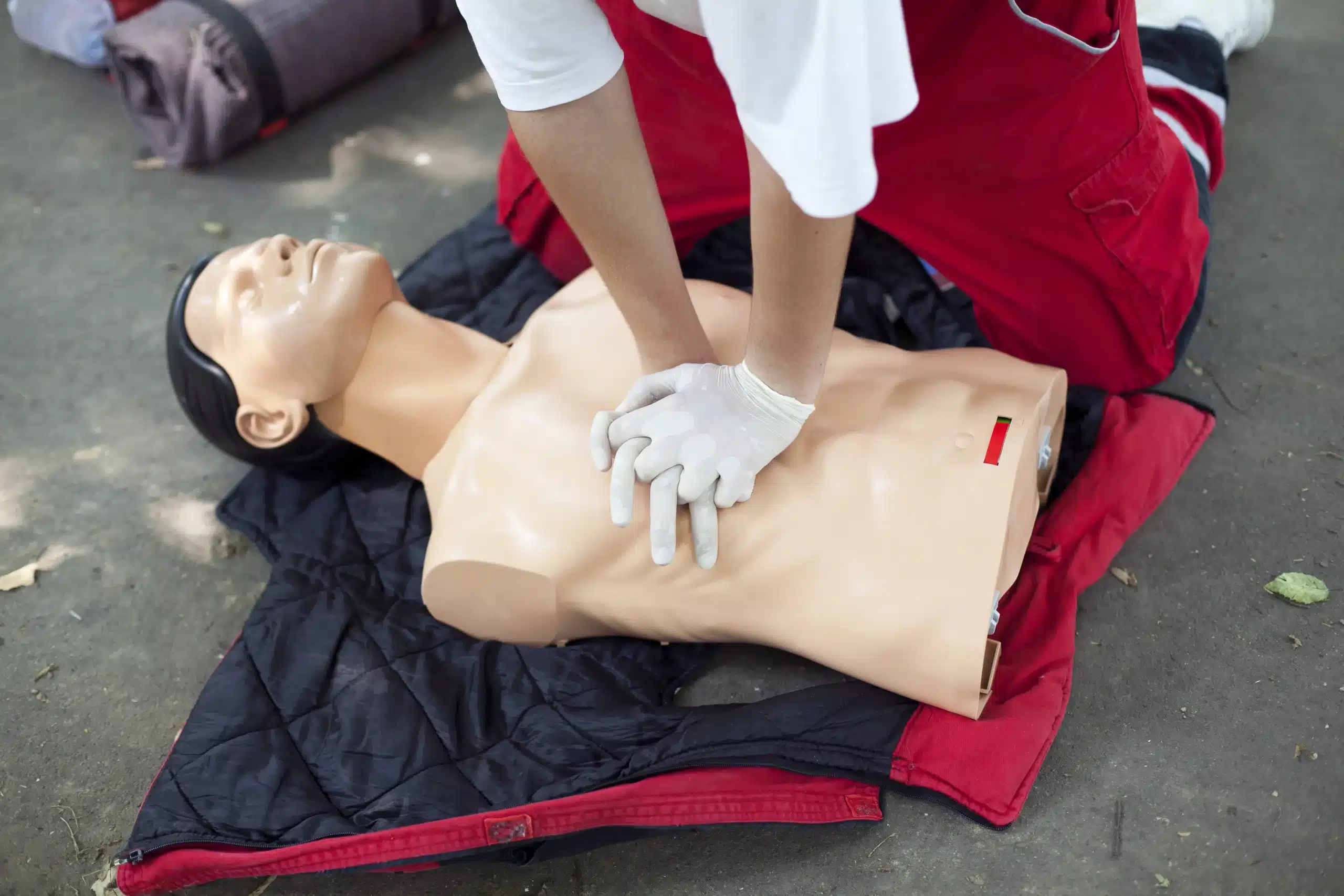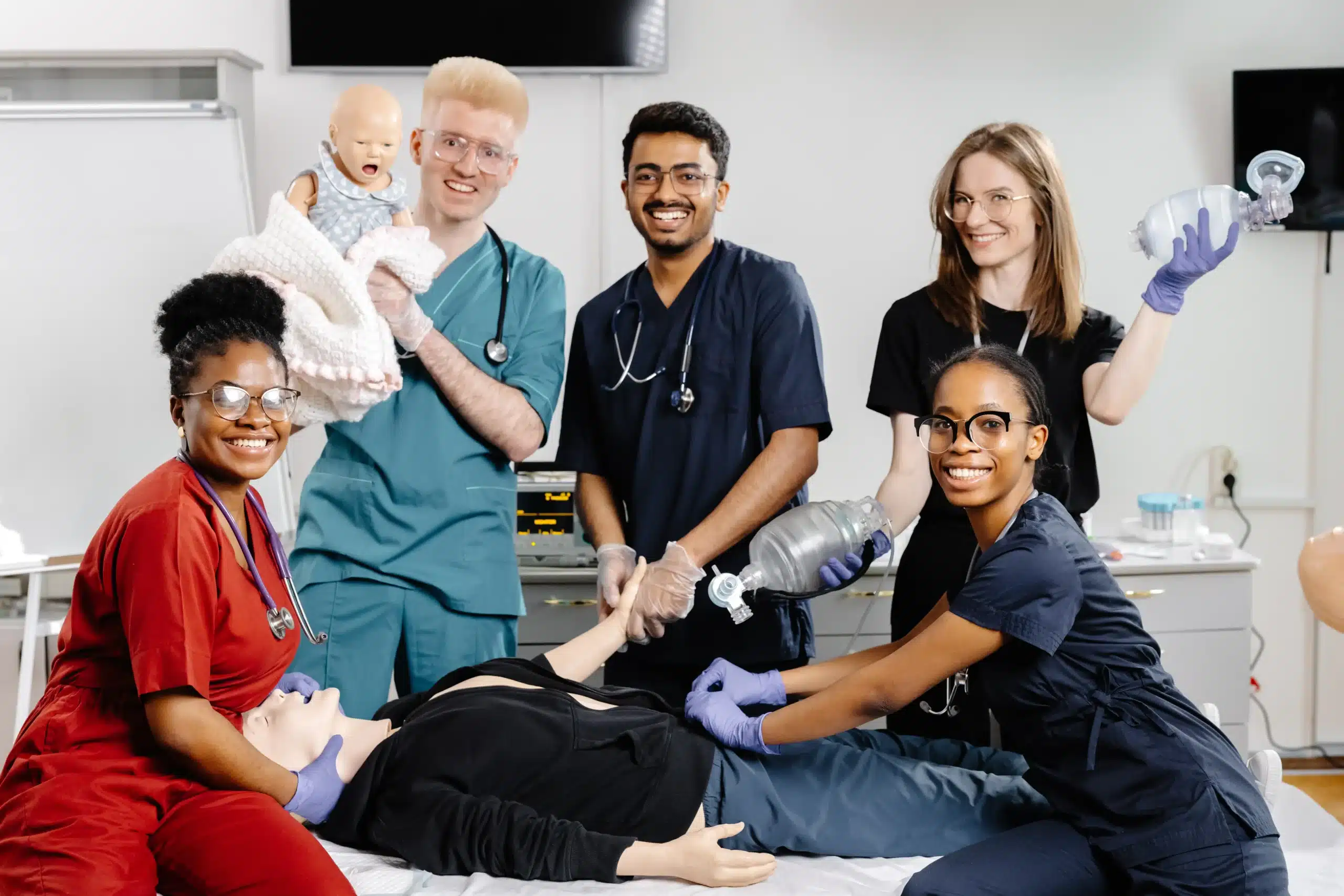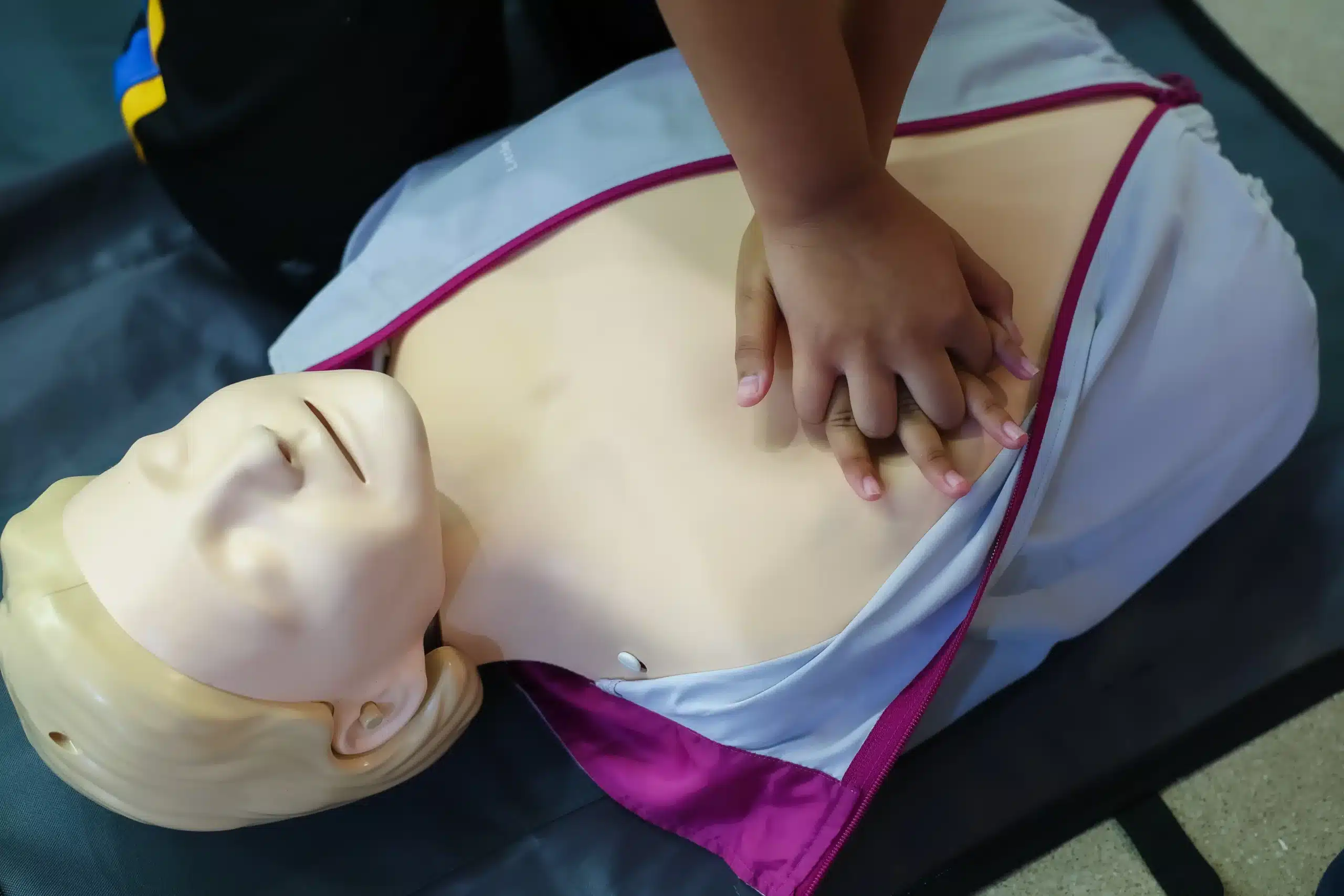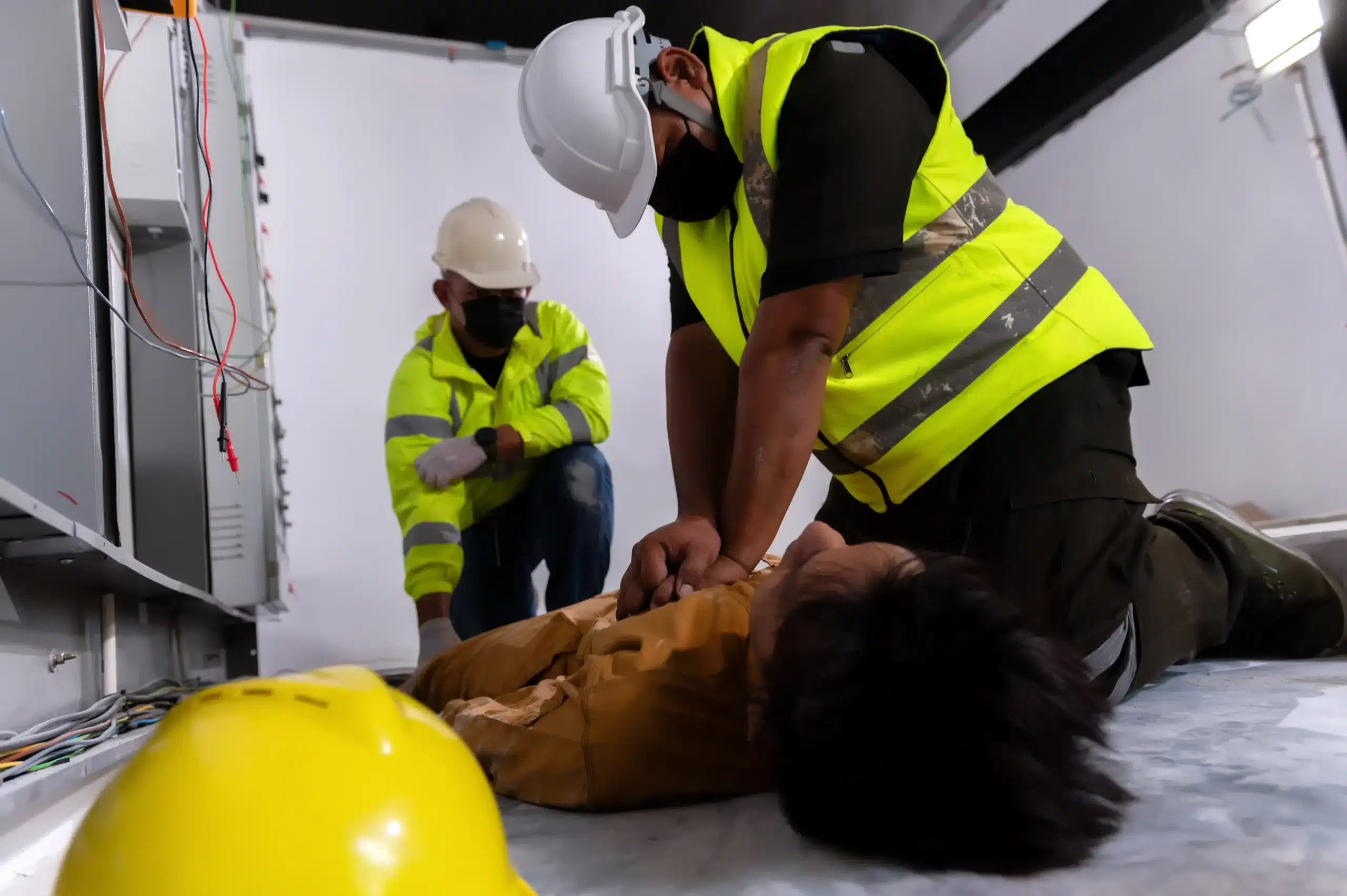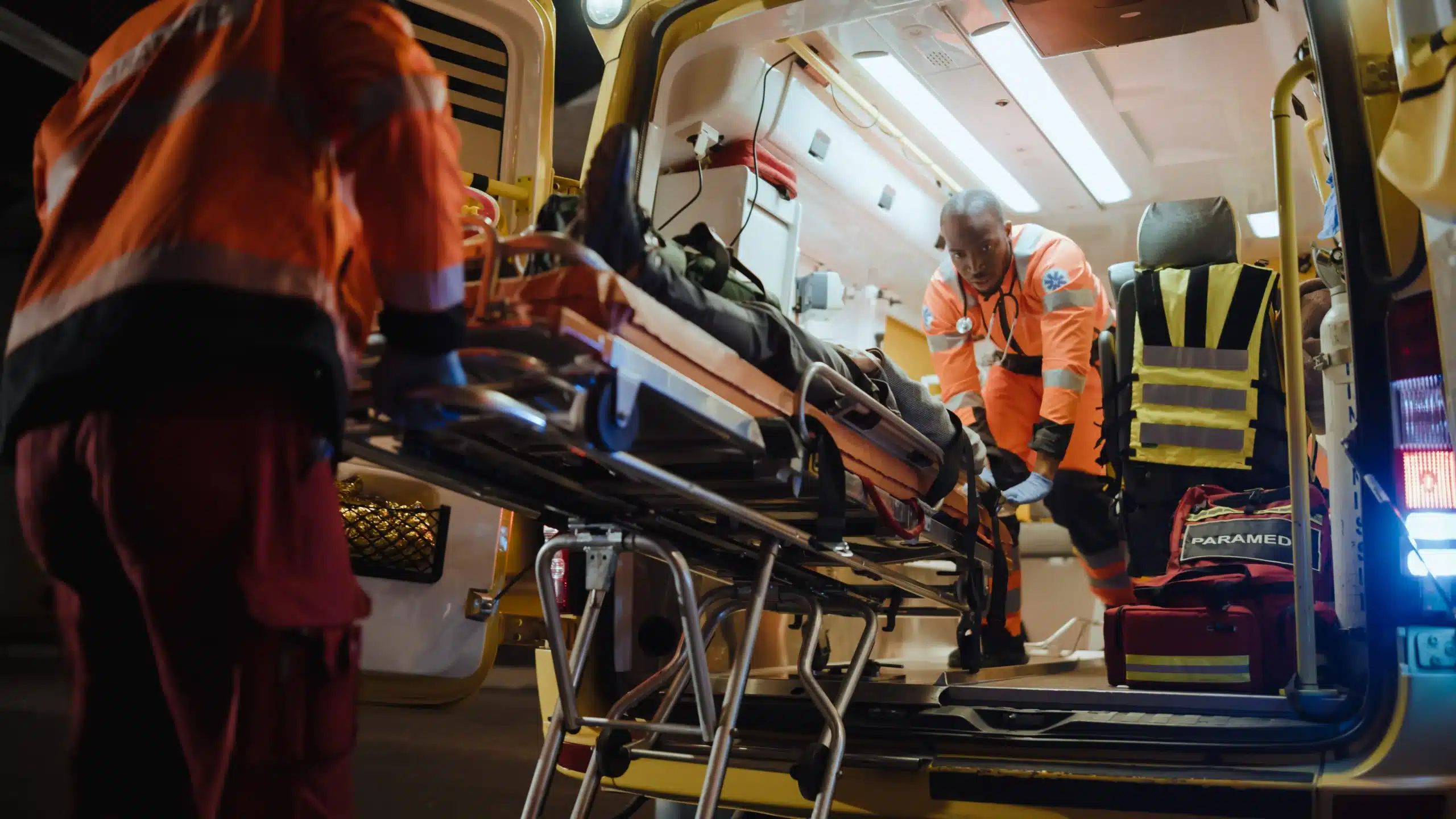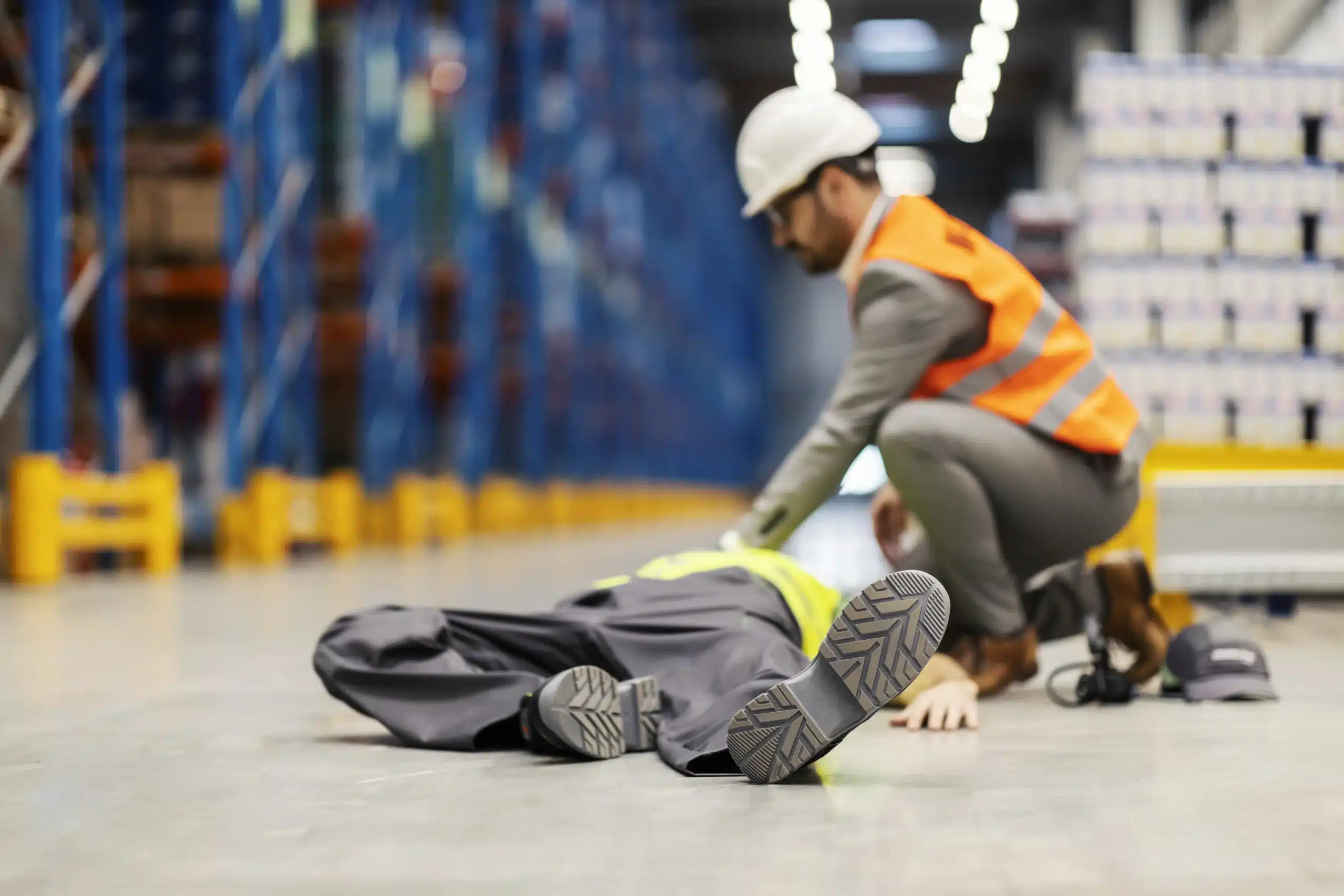Are you a dentist in Visalia committed to providing the highest level of patient care? Preparedness for medical emergencies is a crucial aspect of that commitment. BLS for dentists in Visalia offers comprehensive training to equip you with the skills and confidence to handle various medical situations that may arise in your practice. This article will explore the importance of BLS certification, the specific skills covered in the training, and how it enhances patient safety. We’ll also guide you through the process of getting BLS certified in Visalia, including training options, costs, and renewal requirements. Join us as we delve into the world of BLS and empower you to create a safer and more prepared dental practice.
Key Takeaways
- BLS certification is crucial for patient safety in dental practices: Equipping yourself with the skills to handle medical emergencies, from fainting to cardiac arrest, ensures you can provide immediate care when it matters most. Regular practice and adherence to the latest guidelines are essential for maintaining proficiency.
- Choosing the right BLS training provider simplifies the process: Providers like Safety Training Seminars offer flexible scheduling, American Heart Association certification, and competitive pricing, making it easier to fit training into your busy schedule. Consider online, in-person, or blended learning options to find the best fit.
- Integrating BLS training into your practice goes beyond individual certifications: Develop a comprehensive emergency response plan, conduct regular team drills, and ensure everyone maintains their certifications. This fosters a culture of preparedness and enhances patient safety.
What is BLS for Dentists?
What is BLS and Why Do Dental Practices Need It?
Basic Life Support (BLS) is a level of medical care used for victims of life-threatening illnesses or injuries until they can receive full medical care at a hospital. Trained medical personnel, including certified dentists, paramedics, and emergency medical technicians, can provide it. BLS for dentists goes beyond routine dental procedures63473-5/pdf). It equips you with the skills to handle medical emergencies that might arise during dental treatment. Think of it as your toolkit for responding to crises, performing CPR, and giving rescue breaths when every second counts. A BLS-certified dentist can confidently address emergencies, potentially saving lives within their practice. Being prepared for these situations isn’t just a good idea—it’s a core responsibility. BLS certification ensures you’re ready to respond effectively to life-threatening situations. Beyond the standard AHA BLS courses, dentists benefit from modern training and hands-on practice to build confidence and competence in medical emergencies.
Common Dental Emergencies
Dental emergencies can range from mild to severe. While not all require BLS, being prepared for the worst-case scenario is crucial. Some common situations where BLS skills become essential include:
- Syncope (fainting): Often caused by anxiety or pain, leading to a temporary loss of consciousness.
- Allergic reactions: Patients may experience allergic reactions to medications or materials used during dental procedures, ranging from mild skin rashes to severe anaphylaxis.
- Cardiac arrest: While less common, cardiac arrest can occur in the dental chair due to pre-existing conditions or the stress of a procedure.
- Choking: Patients may choke on dental instruments or debris, requiring immediate intervention.
- Seizures: Certain medical conditions or medications can trigger seizures, which may require BLS intervention to maintain the airway and prevent injury.
- Medical emergencies unrelated to dental procedures: Patients with underlying health conditions may experience medical emergencies during their dental visit, such as heart attacks or strokes.
Having a BLS MED Kit readily available and knowing how to use it is essential for managing these emergencies. The goal of BLS is to keep the brain oxygenated until more advanced medical help arrives. Start with the “PABC” approach (Position, Airway, Breathing, Circulation), especially when the diagnosis isn’t immediately clear. CPR is a cornerstone of BLS and can significantly improve survival rates following cardiac arrest. Being proficient in these techniques can make all the difference in a critical situation.
Essential BLS Skills for Dental Professionals
As a dental professional, you’re responsible for your patients’ well-being—and that extends beyond routine dental care. Medical emergencies can occur in any dental setting, from a simple vasovagal syncope (fainting) to life-threatening situations like cardiac arrest or choking. That’s why BLS training is so important. It equips you with the skills to respond swiftly and effectively, potentially saving a life. Let’s break down the essential BLS skills every dental professional should have.
Giving High-Quality Chest Compressions
Effective chest compressions are the cornerstone of CPR. During BLS training, you’ll learn the proper technique for delivering compressions that maintain blood circulation. This includes hand placement, compression depth, and the appropriate rate. High-quality chest compressions can make all the difference in keeping a patient alive until EMS arrives.
Managing Airways and Giving Rescue Breaths
Another critical component of BLS is airway management. Dental professionals learn how to open a patient’s airway and deliver rescue breaths, ensuring adequate oxygen flow. This can be especially important in cases of respiratory arrest or choking. BLS certification ensures you can confidently manage a patient’s airway and provide ventilation when necessary.
Using an AED
Automated external defibrillators (AEDs) are life-saving devices that can restore a normal heart rhythm during sudden cardiac arrest. BLS training includes instruction on properly using an AED. You’ll learn how to assess the situation, apply the AED pads, and follow the device’s prompts. Rapid AED use significantly increases a patient’s chances of survival. CPR and AED use are covered in our BLS course.
Managing Choking
Choking incidents can occur in dental settings, particularly during procedures. BLS training prepares you to recognize the signs of choking and perform the Heimlich maneuver or other appropriate interventions. You’ll also learn how to manage choking in both conscious and unconscious patients.
Coordinating Emergency Response as a Team
Responding to a medical emergency effectively requires teamwork. BLS training emphasizes coordinated efforts, assigning roles, and communicating clearly during a crisis. This includes activating EMS, retrieving necessary equipment, and supporting the team leader. Efficient teamwork can streamline the emergency response and improve patient outcomes. Our RQI classes offer more information on team-based resuscitation training. Our BLS courses in Visalia cover these essential skills.
Getting BLS Certified in Visalia
Getting your BLS certification is straightforward, but understanding the requirements and your options is essential. This section clarifies what you need to know about BLS certification in Visalia, whether you’re a dentist, hygienist, or other healthcare provider.
Training Requirements
BLS certification courses cover essential life-saving skills for healthcare professionals. These courses teach you to recognize life-threatening emergencies, perform CPR on adults, children, and infants, and use an AED. You’ll also learn how to relieve choking and work effectively as a team during an emergency. The BLS for Healthcare Providers course covers these core skills, providing a strong foundation for responding to emergencies in a dental setting. High-quality training emphasizes the importance of immediate action, effective chest compressions, and proper rescue breaths. For dentists, BLS training provides the skills to confidently address emergencies that may arise during dental procedures.
Renewing Your Certification
BLS certification is typically valid for two years. Renewal ensures your skills are current and aligned with the latest American Heart Association guidelines. All dental professionals, including dentists, hygienists, and assistants, must maintain a current BLS Provider certification. This ensures they meet practice standards and provide the best possible patient care. Check with your certifying organization or employer for specific renewal requirements. You can find more information about renewal courses on the RQI classes page.
California’s BLS Requirements for Dentists
California dentists must be prepared for medical emergencies that may arise in their practice. While BLS certification is a crucial foundation, comprehensive emergency preparedness may involve additional training. This could include specialized training in managing specific dental emergencies or advanced airway management techniques. Regular practice drills are also important to maintain proficiency. Staying informed about best practices and incorporating modern training methods can enhance your ability to respond effectively to any critical situation. For more information on BLS courses in Visalia, check the available BLS courses. Contact us today to learn more about how we can help you meet and exceed California’s requirements. Our low price guarantee ensures you’re getting the best value for your training.
Where to Get BLS Training in Visalia
Finding the right BLS training provider is crucial for dental professionals. Here’s a look at some options in Visalia:
Safety Training Seminars
Safety Training Seminars offers American Heart Association BLS, ACLS, PALS, and CPR courses right here in Visalia. We understand the busy schedules of dental professionals and offer flexible scheduling, including the option to bring the training to your dental office. This convenience allows your entire team to get certified without disrupting patient care. Check our BLS course schedule to find a class that works for you. We also offer a low price guarantee, ensuring you get the best value for your training.
In-Pulse CPR
In-Pulse CPR is another option for BLS training that meets the requirements of dental licensing boards. While they might not be local to Visalia, their program could be a good fit if their schedule or online options better suit your needs. Contact them to see if they offer courses in the Visalia area.
Other Local Providers
You can also explore other local providers like Visalia CPR. They’re known for offering a variety of AHA-certified courses, including BLS. Comparing different providers can help you find the best fit for your schedule, budget, and learning style.
Online vs. In-Person Training
When choosing a BLS course, consider whether online or in-person training is a better fit for you. Online courses offer flexibility, allowing you to learn at your own pace. In-person training provides hands-on practice and direct interaction with an instructor. Some providers, like Safety Training Seminars, offer blended learning that combines the benefits of both. Contact us to discuss which format best suits your needs.
Cost and Benefits of BLS Certification
BLS certification is an investment in patient safety and your career. It’s important to understand both the costs involved and the value you receive.
Course Fees and Other Costs
The cost of BLS certification varies depending on the training provider and the type of course you choose (in-person or online/blended learning). In Visalia, you can expect to pay around $80 for a BLS course, which typically includes study materials, skills testing, and your certification card. Safety Training Seminars offers competitive pricing and a Low Price Guarantee for our BLS courses, so you can be confident you’re getting the best value. Check our website for the most up-to-date pricing and course schedules for BLS courses in Visalia.
CEUs and Career Development
Many healthcare professionals, including dentists, require continuing education units (CEUs) to maintain their licenses. BLS certification often qualifies for CEUs, though there may be an additional fee. Check with your licensing board to confirm CEU requirements and eligibility. Earning your BLS certification demonstrates your commitment to providing high-quality patient care and can enhance your professional development. It signals to employers and patients that you are prepared to handle emergencies and prioritize safety. For dentists, BLS training provides the specific skills needed to respond to medical emergencies that may arise in a dental setting, as detailed in our guide to BLS courses in Tulare. This specialized training can be a valuable asset for career advancement and can contribute to a safer and more confident practice.
What Happens in a BLS Course?
This section covers the key components of a BLS course, from the initial overview to skills assessment and blended learning options. Understanding these elements will help you choose the right course and know what to expect.
Course Overview
BLS certification courses cover the essential skills needed to respond to life-threatening emergencies, including CPR, AED use, and choking relief. The course typically begins with an overview of these topics, emphasizing the importance of immediate action and high-quality CPR. For healthcare providers like dentists, the training focuses on recognizing and responding to emergencies specific to the dental setting. This specialized training helps dentists confidently address situations like respiratory distress, allergic reactions, or cardiac arrest that may arise during dental procedures.
Hands-On Practice
A significant portion of BLS training involves hands-on practice. You’ll learn how to perform chest compressions, deliver rescue breaths, and use an AED on adult, child, and infant manikins. Instructors guide you through the correct techniques, providing feedback and ensuring you develop the muscle memory needed to respond effectively in a real emergency. This practical training builds confidence and competence, preparing you to provide timely and effective care.
Skills Assessment
Throughout the BLS course, instructors assess your skills to ensure you meet the required standards. This typically involves demonstrating your proficiency in CPR, AED use, and choking relief during simulated scenarios. Successful completion of the skills assessment is essential for receiving your BLS certification. Regular practice and annual training are crucial for maintaining proficiency and staying up-to-date on the latest guidelines.
Blended Learning Options
Many BLS providers now offer blended learning options, combining online coursework with in-person skills practice and testing. This flexible approach allows you to learn the cognitive material at your own pace through interactive online modules. You can then attend a shorter in-person session to practice your skills and complete the required assessment. HeartCode BLS is one example of a blended learning program that uses adaptive technology to personalize the learning experience.
Implement BLS Training in Your Practice
BLS training is an investment in your patients’ safety and your team’s confidence. But simply having team members with current certifications isn’t enough. To truly integrate BLS into your practice, you need a structured approach.
Create an Emergency Response Plan
Being prepared for emergencies is crucial in any dental practice. A well-defined emergency response plan ensures your team knows exactly what to do in a crisis. This plan should clearly outline each team member’s role, the location of emergency equipment (like AEDs and oxygen), and the procedures for different emergency scenarios, from mild allergic reactions to cardiac events. BLS certification empowers your team to respond swiftly and effectively, minimizing the impact of any potential crisis. Consider including a checklist in your plan to ensure all essential steps are followed during an emergency. A well-defined plan provides a framework for action, reducing panic and improving patient outcomes. For a comprehensive guide on creating an emergency response plan, check out resources like the A Step-by-Step Guide to Basic Life Support in Dental Emergencies.
Run Regular Team Drills and Simulations
Regular training and simulations are key to maintaining a high level of preparedness. While initial BLS certification provides foundational knowledge, ongoing practice is essential for confident execution in real-life situations. These drills should cover various emergency scenarios relevant to a dental setting. Simulations allow your team to practice their skills in a safe environment, identify areas for improvement, and build muscle memory for critical procedures. Aim for annual BLS training to keep skills fresh and ensure everyone stays up-to-date on the latest guidelines. Articles like Best Practices in Training and Preparedness for Medical Emergencies offer valuable insights into effective training strategies. This consistent practice, along with resources like Basic Life Support and Medical Emergency Preparedness, transforms BLS from theory into a practical, life-saving skillset for your entire team.
Maintain Your BLS Skills and Certification
As a dentist in Visalia, maintaining your BLS skills isn’t just a best practice—it’s essential for patient safety and fulfilling your professional obligations. Regularly refreshing your knowledge and skills ensures you’re prepared to handle emergencies effectively.
Renewal Process and Frequency
BLS certification ensures dental professionals are equipped to respond confidently and effectively to life-threatening situations. All dental professionals (including dentists, hygienists, and assistants) are required to have a current BLS Provider certification. This certification is typically renewed every two years. Staying current with your BLS certification demonstrates your commitment to patient safety and ensures you’re prepared to handle emergencies. Check with your certifying organization, such as the American Heart Association, for specific renewal requirements.
Stay Up-to-Date on Guidelines
Even with a current certification, staying informed about the latest BLS guidelines is crucial. Emergency protocols and best practices can evolve, so ongoing learning is key to providing the highest quality care. Training for emergency preparedness in dentistry should include modern training modalities and experiential learning techniques that incorporate deliberate practice. Subscribe to relevant journals, attend continuing education courses, and participate in workshops to stay sharp. Consider supplementing your AHA BLS courses with additional training.
Resources for Continued Learning
Numerous resources are available to help you maintain and expand your BLS skills. Online refresher courses, skills workshops, and simulation training can reinforce your knowledge and provide valuable hands-on practice. Consider exploring options like the HeartCode BLS Online Course, a self-directed eLearning program that uses adaptive learning technology. You can find more information about BLS classes in Visalia. Staying proactive about your BLS training ensures you’re always ready to provide the best possible care for your patients. BLS training for dentists covers essential skills like chest compressions and rescue breaths.
Why Choose Safety Training Seminars?
When it comes to BLS certification, choosing the right training provider matters. Safety Training Seminars in Visalia offers several advantages that make us a top choice for dental professionals. We understand the demands of your profession and work to make training as convenient as possible.
Flexible Scheduling
We know finding time for professional development is challenging. That’s why Safety Training Seminars offers flexible scheduling to fit your busy schedule. We offer BLS courses in Visalia seven days a week, including evenings and weekends. We can even provide on-site training at your dental practice for your entire team, minimizing disruptions to your workday. This personalized approach lets you schedule training when it works best for everyone.
American Heart Association Certification
Safety Training Seminars is a certified training center for American Heart Association (AHA) courses. This means our BLS training follows the latest AHA guidelines and standards, so you receive high-quality, current instruction. After completing the course, you’ll receive an AHA BLS Provider card, a nationally recognized certification valid for two years. This certification shows your commitment to patient safety and strengthens your professional credentials. We are a leading provider of AHA BLS classes in Visalia.
Competitive Pricing and Our Low Price Guarantee
We believe essential training like BLS should be accessible. Safety Training Seminars offers competitive pricing on all our courses, including our BLS for Healthcare Providers course. We also have a Low Price Guarantee, ensuring you get the best value. If you find a lower price for the same course with a competitor in Tulare County, we’ll match it. Contact us to learn more about our pricing and how we can help you get BLS certified.
Common BLS Questions from Dentists
It’s normal to have questions about BLS certification, especially if you’re a dentist in Visalia looking to renew or get certified for the first time. Here are answers to some common questions we hear from dentists:
Is BLS Really Necessary in Dentistry?
Yes. While we all hope emergencies never happen, they can and do occur in dental settings. A patient might experience a sudden cardiac arrest, allergic reaction, or choking incident. BLS training gives you the skills to respond quickly and effectively in these critical situations. As a BLS-certified dentist, you can confidently perform chest compressions, administer rescue breaths, and use an AED. Your ability to provide immediate care can make all the difference before emergency medical services arrive. CPR and BLS training are essential for maintaining a safe environment for both patients and staff.
How Long Does Training Take?
BLS certification courses typically use a blended learning format. This means you’ll complete an online portion at your own pace, which usually takes between 1.5 and 3 hours. After that, you’ll attend a short, in-person skills session (about 30–40 minutes) at our Visalia training center to demonstrate your skills and receive your BLS certification. This flexible approach makes it easy to fit the training into your busy schedule.
Does BLS Cover More Than CPR?
BLS certification covers a broader range of skills than just CPR. It includes training on how to recognize the signs of a medical emergency, activate the emergency response system, perform high-quality CPR (including chest compressions and rescue breaths), and use an automated external defibrillator (AED). You’ll also learn how to relieve choking and work effectively as part of a team to manage emergencies. These comprehensive skills equip you to handle various medical situations that could arise in your dental practice.
Related Articles
- BLS Training Near Me: A Practical Guide – Visalia CPR Classes
- BLS Certification in Walnut Creek: Your Guide – Visalia CPR Classes
- BLS for Healthcare Providers in Delano: Your Guide – Visalia CPR Classes
- BLS Certification in Tulare County: Your Complete Guide – Visalia CPR Classes
- Find BLS Classes Near Me: A Practical Guide – Visalia CPR Classes
Frequently Asked Questions
Is BLS certification legally required for dentists in California?
While California doesn’t explicitly mandate BLS certification for dentists, being prepared for medical emergencies is a professional and ethical responsibility. BLS certification demonstrates your commitment to patient safety and equips you with the skills to handle emergencies effectively. It’s also often a requirement for malpractice insurance and may be requested by dental boards.
What if I’m already CPR certified? Do I still need BLS?
CPR is a core component of BLS, but BLS training encompasses a broader range of skills. It includes recognizing medical emergencies, using an AED, managing choking, and working as a team during a crisis. If your CPR certification isn’t specifically for healthcare providers, upgrading to BLS certification is highly recommended.
How often do I need to renew my BLS certification?
BLS certification is typically valid for two years. Renewing your certification ensures your skills and knowledge are up-to-date with the latest American Heart Association guidelines.
What if I have a busy schedule? How can I fit BLS training in?
We understand the demands of a dental practice. Safety Training Seminars offers flexible scheduling options, including weekend and evening classes, as well as on-site training at your dental office. This allows you and your team to get certified without significant disruption to patient care.
What’s the difference between online and in-person BLS training?
Online BLS training offers flexibility, allowing you to learn the material at your own pace. In-person training provides hands-on practice and direct interaction with an instructor. Blended learning combines the benefits of both, offering online coursework followed by a shorter in-person skills session. We can help you determine which format best suits your learning style and schedule.
